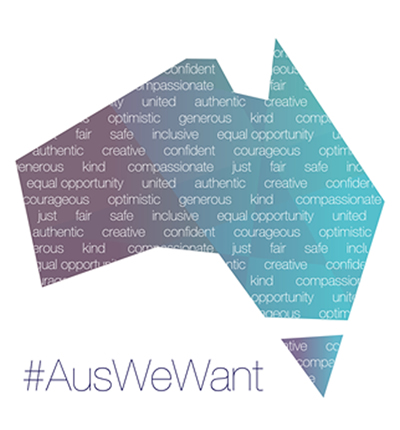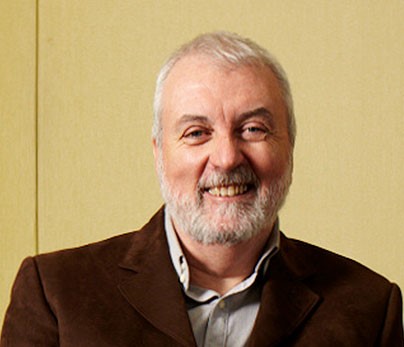#AusWeWant Solutions Forum - Education - Equal Opportunity
 Building the Australia we want starts with education
Building the Australia we want starts with education
CCA, with the support of partners Origin Foundation and PwC Australia brought together 30 leaders in the first Australia We Want Solutions Forum in Melbourne on 2 August, 2017. This exceptional gathering of change-makers and thought-leaders focused on the #AusWeWant measure of educational attainment, an indicator for the #AusWeWant value of equal opportunity (and of course with relevance across other values).
The Solutions Forum begins our work in developing a policy and advocacy platform to create the Australia We Want. We have started an important conversation. A report will follow. We look forward to sharing news and resources and together, creating the momentum for change.
Key News and Resources:
- Making Education Our Business, Opinion Piece following the forum, David Crosbie, CEO, Community Council for Australia, Pro Bono News, 3 August 2017
- Australia We Want Background Paper on the Data and Evidence, prepared by Anne Hampshire, Head of Research and Advocacy, The Smith Family
- Pre-reading including case studies and useful links provided to forum participants in July 2017
A word from our partner

Sean Barrett, Head of Origin Foundation
Last year, the Community Council of Australia launched the ‘Australia We Want’ campaign. It moved the debate on from economic rationalism to paint a picture of a compassionate, fair, inclusive, generous and innovative Australia. The campaign touched a nerve and provoked widespread media coverage and public discussion.
In the next phase of the campaign, the CCA is taking on the challenge of translating the vision into tangible actions to make Australia a better place.
It is starting by looking at the catalytic role of education in achieving the ‘Australia We Want’.
Values
The work of the Productivity Commission in its report Deep and Persistent Disadvantage in Australia (July 2013) makes clear the pivotal role of Education:
‘Education is a foundation capability. It improves a person’s employment prospects and earning capacity, and the evidence points to a relationship between education and better health and raised civic and social engagement.’
‘Civic and social engagement’ summarises many of the values enshrined in the Australia We Want.
The Productivity Commission report cited the critical areas of educational underachievement as being among children in low SES communities, those living in regional and rural areas, and the Indigenous.
Measurement
A measure of education suggested in Social Inclusion in Australia. How Australia is Faring (Commonwealth of Australia 2010) is:
‘Participating in schooling and completing a Year 12 or Certificate II assists people to find employment, participate in community activities and improve their wellbeing. Therefore, it is an important indicator of social inclusion.’
Urgency
There is no time to lose.
The future of work is changing rapidly. Gone are the days of education and training for a single career and retirement at 65. It is possible that some of today’s school children will live to be 100 and their working lives will span more than 65 years. They will have six or more different careers. More than 60% of today’s schoolchildren will eventually be employed in jobs that have yet to be created. In these scenarios it is widely accepted that people will need at least 14 years of education. Only the educated and adaptable will be able to survive in this jobs market.
Educational under performance among Indigenous children is notorious and now a demographic time bomb is emerging. ABS projections shows that soon 33% of the Indigenous population will be below the age of 14 years. This compares with 18% in the non-Indigenous population. If another generation is lost to low educational outcomes it will create problems in the welfare, health and justice systems later on.
Second class citizens are being created in rural and regional Australia. Educational attainment decreases the further you go from metropolitan centres. The children outside the city are not getting the same educational and life opportunities as their fellow urban Australians.
We have entered a period where facts, and science can be ignored and replaced by the outlandish.
In such circumstances we must rethink education to help address the things that ail our society.
Call to Action
The discourse around education is largely negative. It is recognised among social marketers that achieving change requires raising awareness of the problems - the negatives - but this must then be followed by presentation of the solutions. Continued focus on the negatives leads people to ‘turn off’; to regard the problem as intractable.
The CCA is now challenging you, the leaders in education policy development, and delivery to move beyond the current negative discourse on what is wrong with the education system to build on the successes. What can we learn from the initiatives and programs that are re-engaging children in learning and helping them to fulfil their potential? What are the two or three critical levers that will create an education agenda which will deliver educational advantage to all, and thereby lay the foundations for achieving the Australia We Want.
Conversely, if educational attainment is not improved the goals of the Australia We Want will not be achievable and disadvantage will worsen. As Prof Tony Vinson explained in his landmark research Dropping Off the Edge: ‘Profiling of Australia’s most disadvantaged communities using social, health and economic indicators highlights the central importance of limited schooling in triggering and sustaining concentrated local disadvantage’.
